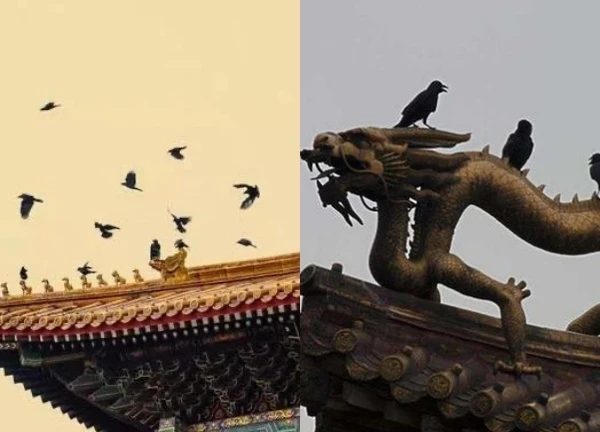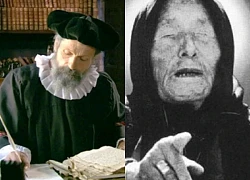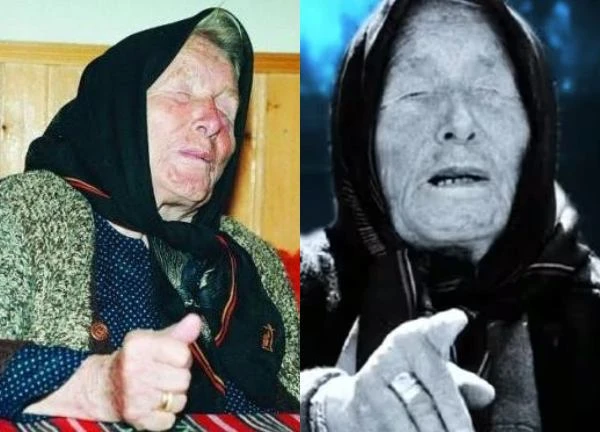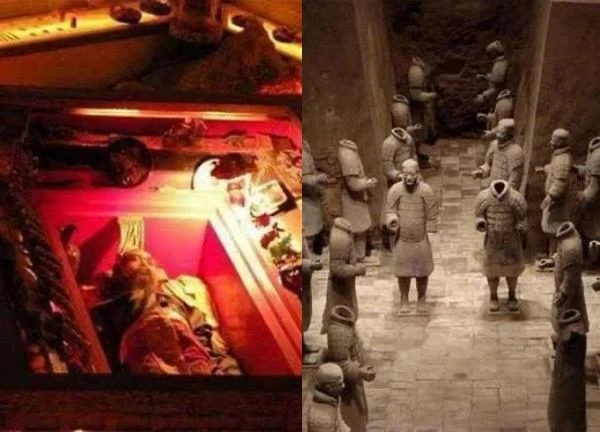Flocks of crows regularly fly back to the Forbidden City at midnight, signaling a creepy spiritual event.

3 | 0 Discuss | Share
Isaac Newton's 1704 letter predicting the end of the world was found after many years of being lost and publicly displayed at the Hebrew University in Jerusalem in 2007.
The Bible says that this battle will mark the end of the world, ushering in a new era of peace brought by God. Newton used mathematics and biblical historical dates to hypothesize about the end of the world, using the dates mentioned in the Bible as years to explain the prophecy. To him, these periods (especially 1260 years) represented a time of abandonment of the Church and the rise of “corrupt†Trinitarian religions, primarily Catholicism, which some Protestants considered a cult.
Newton studied history to determine the exact date when this renunciation officially began, and settled on 800 AD: the year in which the Holy Roman Empire was founded. 800 AD plus 1,260 gave Newton the year 2060. "Then the time and half a time is 42 months or 1260 days or three and a half years, counting twelve months into a year and 30 days into a month as was done in the Calendar of the Primitive Year," the 1704 letter read. "And the days of the short-lived Beasts being used to denote the years of the kingdoms that lived, the period of 1260 days, if counted from the complete conquest of the three kings in 800 AD, would end in 2060 AD. It may end then, but I see no reason why it should end sooner."
Newton's prediction "did not involve the use of anything as complex as differential calculus, which he invented, but simple arithmetic that even children could perform," said Stephen D. Snobelen, professor of the history of science and technology at King's College in Halifax.
Newton used the numbers 1260, 1290, 1335, and 2300 days found in the Book of Daniel and the Book of Revelation, which discuss the end and beginning of certain times.
However, he instead treated them as years using the "day-for-year principle", a method used to interpret biblical prophecies that states that the word "day" represents a year.
According to Snobelen, in the Book of Revelation, Christ and the saints will intervene to establish the Kingdom of God globally, reigning for 1,000 years on Earth.
Newton also believed that around this time, the corrupt branches of Christianity would collapse, and the true gospel would be preached openly. According to biblical prophecy, before Jesus' return, the Jews would return to Israel and rebuild the Temple.
But despite his efforts to predict the end of the world, Newton was "wary of fixing the end of the world" and "worried that the failure of human predictions based on God's prophecy would discredit the Bible," Snobelen writes.
Newton even questioned his own prediction that the current era would end in 2060. "It may end later, but I see no reason why it should end sooner," he wrote.
In another prediction regarding the date 2060, Newton stated: "I mention this not to assert when the end of the world will be, but to put an end to the rash speculations of fanciful men who are constantly predicting the end of the world and thereby discrediting the divine prophecies which so often occur when their predictions fail to come true. Christ comes as a thief in the night, and we know not the times and seasons which God hath put in his heart."
Today, it may seem counterintuitive for a scientist to be so concerned with biblical prophecy. But according to Snobelen: "Newton was not a 'scientist' in the modern sense of that term. Rather, he was a 'natural philosopher.'"
"Practiced from the Middle Ages to the eighteenth century, natural philosophy included not only the study of nature but also the study of God's hand in nature," he added.
For Newton, there was no impenetrable barrier between religion and what we call science today. Throughout his long life, Newton labored to discover God's truth - whether in Nature or in the Bible.
Isaac Newton was born on January 4, 1643 in Woolsthorpe, Lincolnshire (England), the only son of a local farmer, Isaac. Unmarried and childless, Isaac Newton lived with his niece's family in Cranbury Park for the rest of his life. Despite his wealth, he always lived in insecurity, perhaps because of the haunting effects of his "violent childhood".
He died on March 31, 1727. From the articles about Isaac Newton by mathematician Charles Hutton, economist John Mavnard Kevnes or physicist Carl Segan. After that, people decided to conduct an autopsy on Newton and came to the conclusion that "the scientist remained a virgin" throughout his 84 years of life.
To commemorate the great scientist of mankind, on the memorial statue of Isaac Newton, the sentence "He who surpassed all geniuses" was engraved. Isaac Newton was also knighted by the Queen of England.
Nostradamus - Vanga and the prophecy of 2025 coincide strangely!  JLO17:21:00 20/01/2025The predictions of the famous 16th century physician - prophet - astrologer Nostradamus continue to attract attention. In 2025, he predicted that the world would witness a change in the international order, a medical breakthrough, and the end of a long war.
JLO17:21:00 20/01/2025The predictions of the famous 16th century physician - prophet - astrologer Nostradamus continue to attract attention. In 2025, he predicted that the world would witness a change in the international order, a medical breakthrough, and the end of a long war.

3 | 0 Discuss | Share

8 | 1 Discuss | Share

2 | 1 Discuss | Share

4 | 1 Discuss | Share

3 | 1 Discuss | Share

1 | 1 Discuss | Share

4 | 1 Discuss | Share

3 | 1 Discuss | Share

3 | 0 Discuss | Share

3 | 0 Discuss | Share

5 | 0 Discuss | Share

2 | 0 Discuss | Share










1 | 0 Discuss | Report